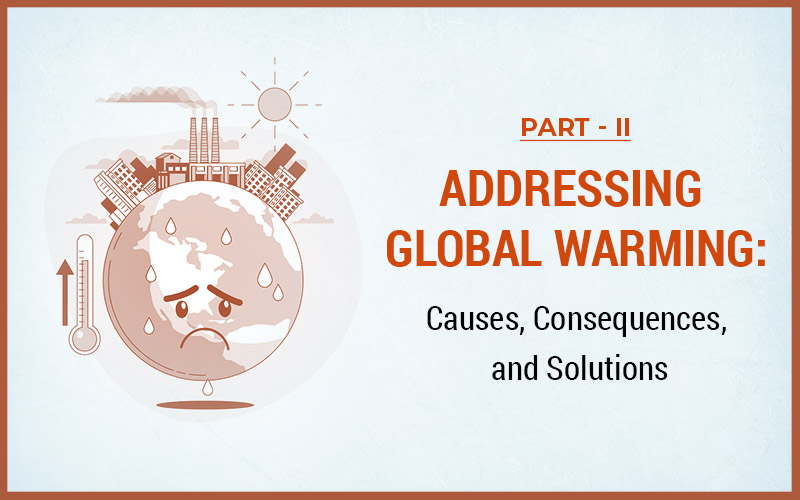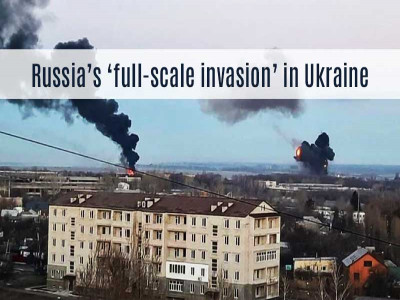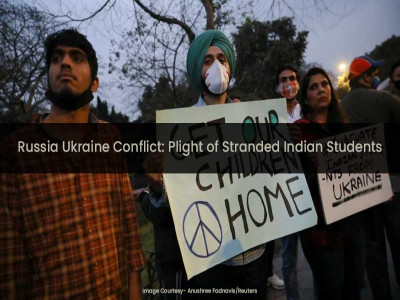
Global Warming: Causes and Solutions to Address Climate Change and Heat waves | Part 2
In recent years, the world has witnessed an unprecedented increase in the frequency and intensity of heat waves, wildfires, and other climate-related disasters. These events are a result of global warming, which is caused by the emission of greenhouse gases (GHGs) into the atmosphere.
The primary sources of GHGs are human activities such as burning fossil fuels, deforestation, and industrial processes. The accumulation of these gases in the atmosphere traps heat from the sun and warms the Earth's surface. This phenomenon is known as the greenhouse effect and is responsible for the rising global temperatures.
The consequences of global warming are far-reaching, and they are already affecting the planet and its inhabitants. The melting of ice caps and glaciers is leading to a rise in sea levels, which threatens to inundate low-lying areas and coastal cities. Heat waves, droughts, and wildfires are becoming more frequent and intense, causing loss of life and property damage. Changes in weather patterns are also affecting agriculture and food security, leading to food shortages and price spikes.
To address the challenge of global warming, we need to adopt a multi-pronged approach that addresses both the causes and consequences of climate change. Here are some solutions to consider:
1. Reduce greenhouse gas emissions
Reducing GHG emissions is the most crucial step we can take to address global warming. This can be achieved by shifting to renewable energy sources such as solar, wind, and hydropower, and by increasing energy efficiency in buildings, transportation, and industry. Governments and businesses can also implement policies and regulations that promote clean energy and penalize high-emitting activities.
2. Protect and restore ecosystems
Ecosystems such as forests, wetlands, and oceans play a vital role in sequestering carbon and regulating the Earth's climate. Protecting and restoring these ecosystems can help mitigate the effects of global warming. This can be done by halting deforestation, promoting reforestation, and reducing the use of pesticides and fertilizers that harm ecosystems.
3. Adapt to climate change
As the effects of global warming become more severe, we need to adapt to changing weather patterns and extreme events. This can be done by improving infrastructure and building codes to withstand floods, storms, and heat waves. We can also develop new agricultural practices that are more resilient to droughts and floods and invest in early warning systems to alert communities to impending disasters.
4. Raise awareness and take action
Raising awareness about the causes and consequences of global warming is crucial to building support for climate action. Governments, businesses, and civil society can work together to educate the public about the science of climate change and the steps we can take to address it. Individuals can also take action by making changes in their own lives, such as reducing energy consumption and carbon footprints.
Global warming is a complex and urgent problem that requires a concerted effort from all sectors of society. By reducing greenhouse gas emissions, protecting and restoring ecosystems, adapting to climate change, and raising awareness, we can work towards a sustainable future that benefits both people and the planet.
Disclaimer: The opinions expressed in this article are those of the author's. They do not purport to reflect the opinions or views of The Critical Script or its editor.

Newsletter!!!
Subscribe to our weekly Newsletter and stay tuned.

















Related Comments